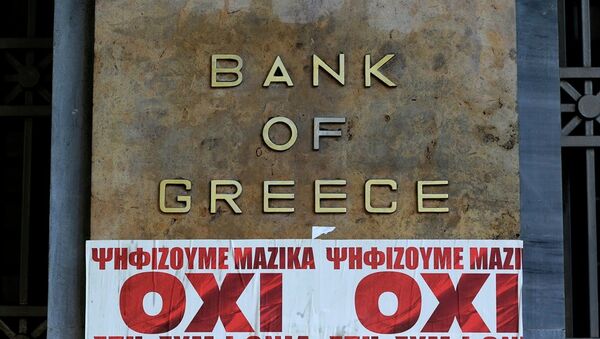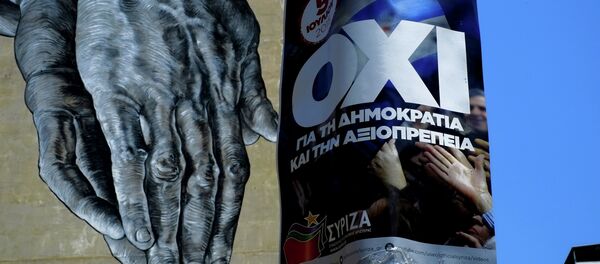He blames the Tsipras government for going back on the original agreed recovery program and not coming up with a credible plan for the future, which would allow his creditors to carry on with the bailout.
"Those who have to be blamed are those who put Greece in a situation where they had minus 15 percent deficit. The debt issue is not necessarily the main problem," he said.
"The main problem is to have a good plan, a plan that would deliver jobs and growth and if you have that, you have credibility and creditworthiness. Creditors can then envisage some kind of alleviation."
Lack of Credibility
Trichet said the European Central Bank (ECB) was continuing to give $97 billion Emergency Liquidity Assistance every day – putting money into the Greek financial system. However, he told the Today program on BBC radio that Greece had not come up with a credible recovery plan.
"The ball is in the camp of the Greek Government. Greece has to rescue itself with a good plan. It is exactly what is at stake today. You have a country which is asking for help and you have countries that have to decide whether to give help or not."
Statement by IMF Managing Director Christine Lagarde on Greece: http://t.co/83IH6NrlEC
— IMF (@IMFNews) July 6, 2015
"In my opinion it is very clear that if Greece presents a good plan, which would be credible – not only in the eyes of the Europeans, but also in the eye of the International Monetary Fund – there are solutions – exactly as [in the previous bailout plans for] Ireland, Spain and Portugal," Trichet said.
He said that – at the time of the original Greek bailout in 2010 – the ECB was also running bailout plans for the three other countries.
"They all engaged in courageous program over time and most of them – apart from Greece – could go back to growth and job creation and credibility."



